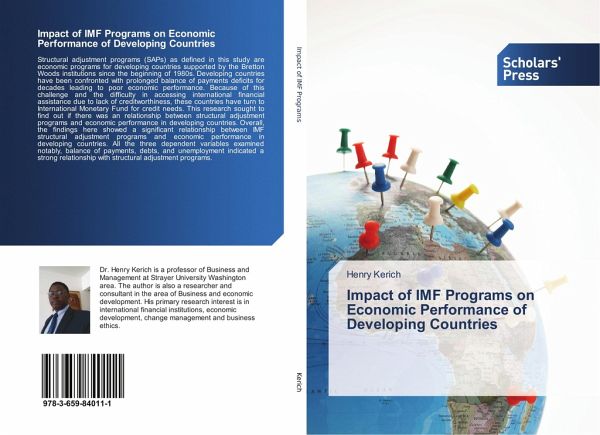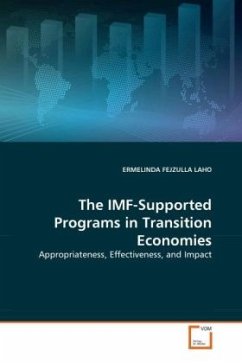
Impact of IMF Programs on Economic Performance of Developing Countries
Versandkostenfrei!
Nicht lieferbar
Structural adjustment programs (SAPs) as defined in this study are economic programs for developing countries supported by the Bretton Woods institutions since the beginning of 1980s. Developing countries have been confronted with prolonged balance of payments deficits for decades leading to poor economic performance. Because of this challenge and the difficulty in accessing international financial assistance due to lack of creditworthiness, these countries have turn to International Monetary Fund for credit needs. This research sought to find out if there was an relationship between structura...
Structural adjustment programs (SAPs) as defined in this study are economic programs for developing countries supported by the Bretton Woods institutions since the beginning of 1980s. Developing countries have been confronted with prolonged balance of payments deficits for decades leading to poor economic performance. Because of this challenge and the difficulty in accessing international financial assistance due to lack of creditworthiness, these countries have turn to International Monetary Fund for credit needs. This research sought to find out if there was an relationship between structural adjustment programs and economic performance in developing countries. Overall, the findings here showed a significant relationship between IMF structural adjustment programs and economic performance in developing countries. All the three dependent variables examined notably, balance of payments, debts, and unemployment indicated a strong relationship with structural adjustment programs.













